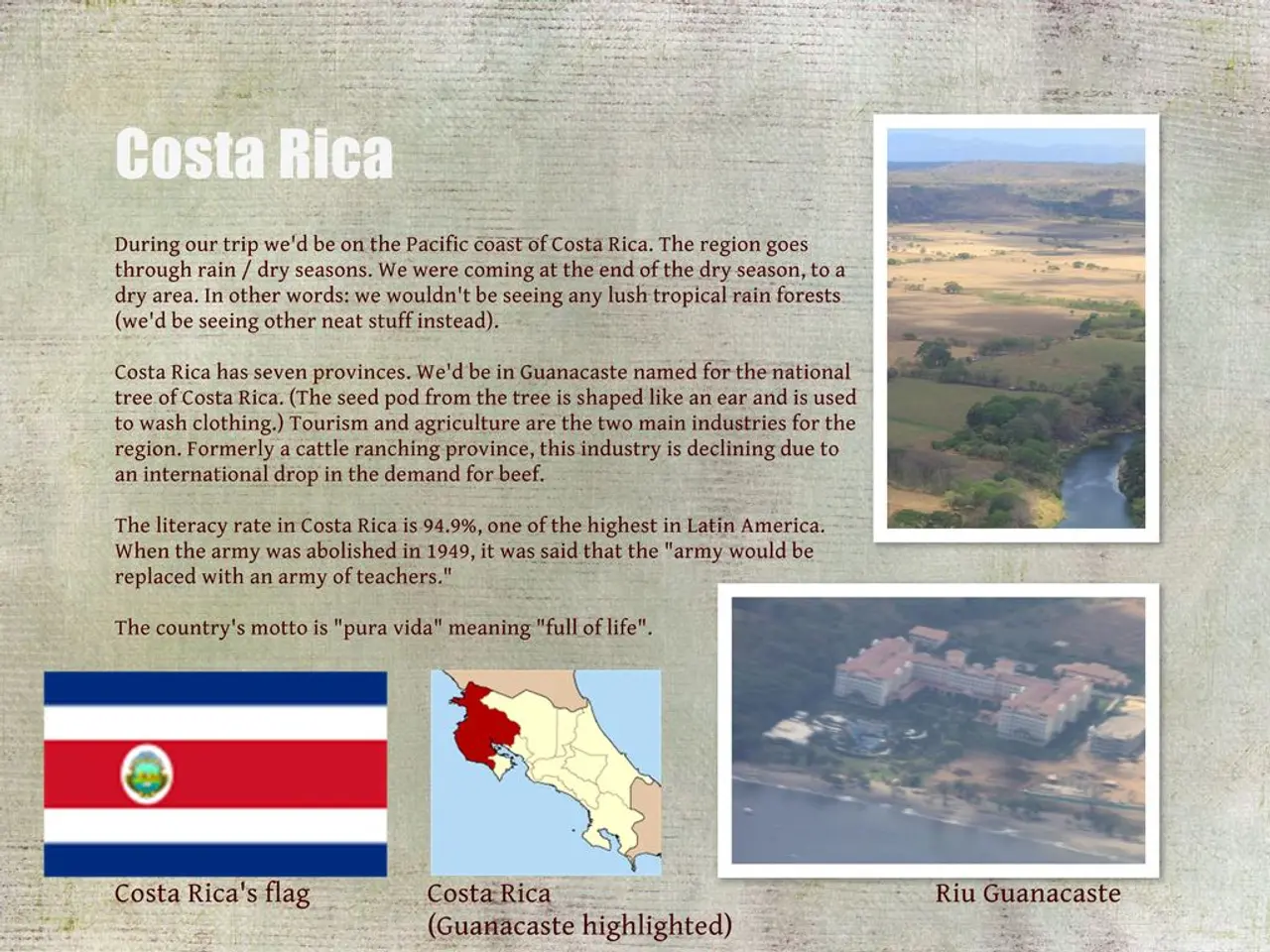Economic partnership arrangements between the United Arab Emirates (UAE) and Costa Rica, as well as the UAE and Mauritius, officially take effect
The UAE's Comprehensive Economic Partnership Agreements (CEPAs) have been instrumental in driving the country's non-oil trade to record highs. In 2024, non-oil trade reached an all-time high of US$817 billion, marking a 14.6% increase over 2023.
Two significant CEPAs, the UAE-Costa Rica and the UAE-Mauritius agreements, have contributed to this growth. These agreements offer preferential market access, facilitation of trade in goods and services, increased investment opportunities, and support for small and medium-sized enterprises (SMEs).
The UAE-Costa Rica CEPA, signed in April 2024, has already boosted non-oil trade, reaching over US$82.6 million in 2024, marking a 27.5% growth compared to 2023. The UAE-Mauritius CEPA is projected to result in a fourfold increase in UAE exports to Mauritius.
The agreements also include modern provisions to support digital economy activities, enhancing trade efficiency and connectivity. They promote gender inclusion in economic activities and aim to bolster the growth of SMEs by improving their access to international markets.
The UAE-Mauritius CEPA will open access to one of Africa's most promising economies, further strengthening the UAE's global trade ties. Under the agreement, over 97% of UAE exports to Mauritius will benefit from immediate tariff elimination or gradual tariff reduction over a maximum of 5 years.
The UAE-Costa Rica CEPA will facilitate strategic capital exchange, adding to the UAE's approximately US$673 million already invested in Central America. The agreement will reduce tariffs on a wide range of goods, simplify customs procedures, and establish pathways for investment.
The UAE's CEPAs form part of a broader network of at least 27 agreements designed to enhance the UAE's position as a global trading hub. These agreements have contributed to robust growth in UAE’s non-oil trade, with partners like Costa Rica and Mauritius already experiencing positive trade engagement.
Dr. Thani bin Ahmed Al-Zeyoudi, Minister of State for Foreign Trade, made a statement regarding the CEPA programme, highlighting its role in the UAE’s strategic goals of economic diversification, attracting foreign investment, and fostering sustainable, innovation-driven growth outside the oil sector.
The UAE aims to increase its foreign trade to AED4 trillion (US$1.1 trillion). With twelve further deals signed and awaiting ratification with markets around the world, the UAE is well on its way to achieving this goal.
In summary, the UAE-Costa Rica and UAE-Mauritius CEPAs offer expanded market access, trade facilitation, investment promotion, and inclusive economic growth, benefiting all parties involved. These agreements are a testament to the UAE's commitment to fostering strong economic relationships with strategically located and rapidly emerging economies.
- The UAE-Costa Rica and UAE-Mauritius Comprehensive Economic Partnership Agreements (CEPAs) have been key in boosting the UAE's non-oil trade, with the former reaching over US$82.6 million in 2024, marking a 27.5% growth compared to 2023.
- The UAE-Mauritius CEPA is expected to lead to a fourfold increase in UAE exports to Mauritius, while the agreement with Costa Rica will facilitate strategic capital exchange and reduce tariffs on a wide range of goods.
- The UAE's CEPAs, including the agreements with Costa Rica and Mauritius, are part of a broader network designed to enhance the UAE's position as a global trading hub, aiming to increase foreign trade to AED4 trillion (US$1.1 trillion) through fostering strong economic relationships with strategically located and rapidly emerging economies.




